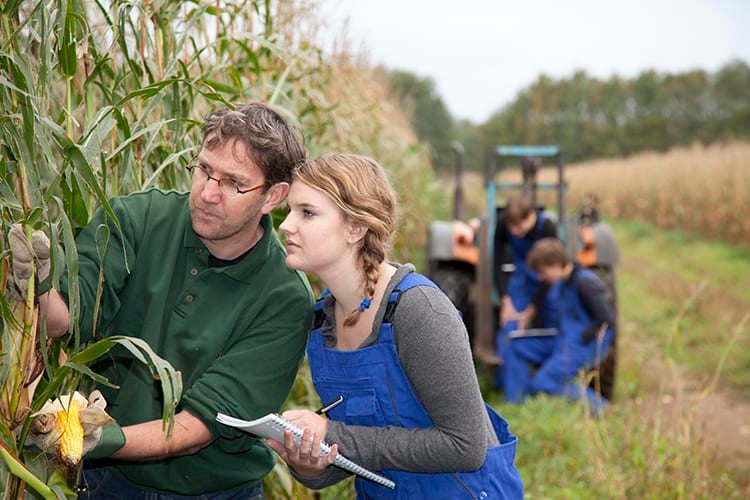When it comes to the future of agriculture, Heather Tansey is certain of two things: a continued focus on sustainable production methods is essential for feeding an ever-increasing global population, and strong leaders in agriculture are critical for charting the path forward.
“The challenges that we as a food and ag sector are facing are daunting…and they will require lots of different perspectives if we’re going to feed the 10 billion people who’ll be on the planet in 2050,” says Tansey, sustainability lead for Cargill Animal Nutrition and Protein. “We want to bring a number of people to the table [and also] learn from the students who may have really creative ideas.”
Cargill, a longtime supporter of the State Officer Leadership Continuum, Agriscience programming and Living to Serve grants, announced a $2.1 million investment in the National FFA Organization over the next three years. The funds will be used to support the FFA curriculum, helping prepare students for college and career opportunities along the food, agriculture food and natural resources value chain. Solving sustainable agriculture challenges will be a key component of the curriculum.
Farmers face significant challenges in pursuing sustainable agriculture, from adapting to new production methods and scaling operations to accessing funding to put more sustainable practices into place.
FFA alumnus John Niemann, president of Cargill’s North American protein ingredients and international business, believes FFA can play an important role in addressing those challenges.
“This initiative builds on the strong environmental stewardship work already led by farmers and ranchers,” says Niemann. “Together, we are all focused on feeding people, building strong agricultural communities and protecting the legacy for future generations.”
The investment in FFA is about more than just funding, says Stacey Smida, senior manager of grants and community engagement for Cargill. The agribusiness corporation plans to take a hands-on role in developing curriculum and bringing in new partners to help advance the future leaders in food and agriculture.
“The students who are coming through the FFA organization have a passion to bring in new sustainable practices,” Smida says. “Cargill wants to be part of a collaborative effort to build future leaders and to make a meaningful difference in solving some of our biggest sustainability challenges.”












